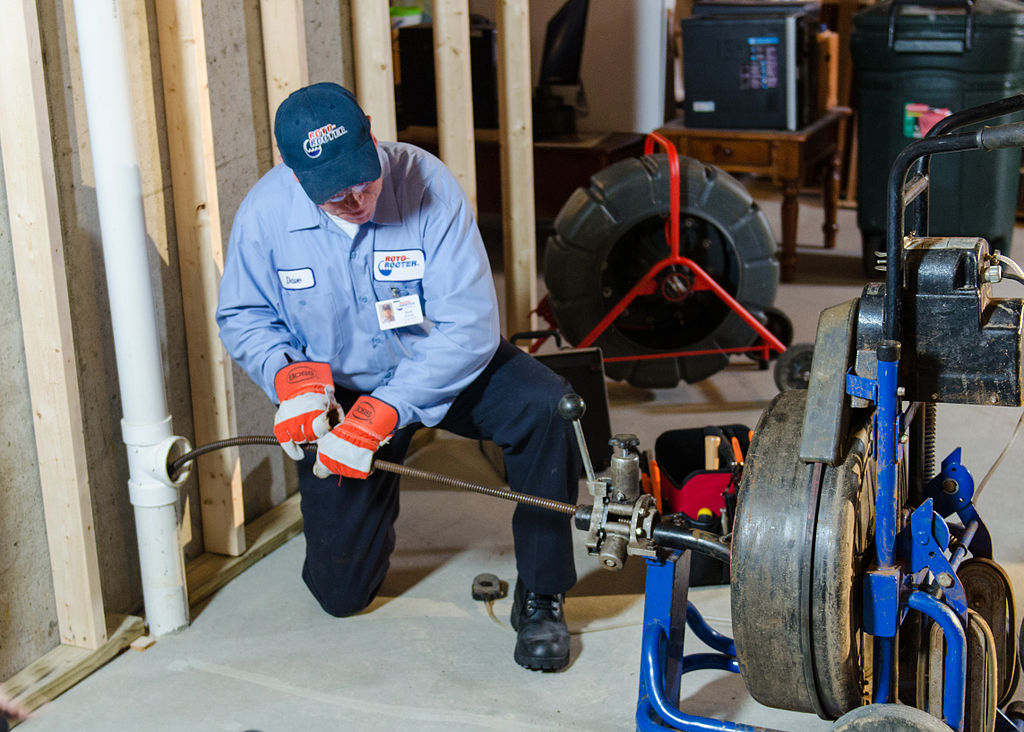HVAC Jobs in the UK – A Day in the Life of a Technician
An HVAC technician in the United Kingdom often begins the day by checking tools and reviewing scheduled service calls. Work includes installing or repairing systems, monitoring safety, and coordinating with crews. Regional and neighboring city companies employ staff for residential and commercial sites.

What Does a Typical Day Look Like for HVAC Technicians in the UK?
The day-to-day work of HVAC technicians varies significantly based on specialization, employer, and season. Most technicians start their workday between 8-9 AM, reviewing their job schedule and gathering necessary tools and parts. During winter months, heating system breakdowns create urgent service calls, while summer brings air conditioning maintenance and repair work.
A technician might begin with a scheduled maintenance visit at a commercial property, performing tasks such as checking refrigerant levels, cleaning condenser coils, inspecting electrical components, and ensuring thermostats function correctly. These preventative maintenance visits typically follow checklists specific to each system type and manufacturer specifications.
By midday, they might shift to an installation project or respond to emergency repair calls. The afternoon could involve completing documentation, ordering parts, or consulting with clients about system upgrades. Most technicians work standard business hours, though emergency call-outs may require evening or weekend availability, especially during extreme weather conditions.
Essential Skills and Qualifications for UK HVAC Careers
Success in the HVAC field requires a combination of technical knowledge and practical abilities. Most technicians enter the industry through apprenticeships, technical college courses, or NVQ qualifications in HVAC engineering or building services. The most common entry path involves completing a Level 2 or Level 3 Diploma in HVAC or Refrigeration and Air Conditioning.
Beyond formal qualifications, several certifications are vital for professional practice. These include F-Gas certification for handling refrigerants, compliance with Gas Safe Register requirements for those working with gas systems, and familiarity with building regulations and safety standards.
The technical skill set encompasses mechanical aptitude, electrical knowledge, understanding of thermodynamics, and proficiency with specialized tools and testing equipment. Equally important are problem-solving abilities, customer service skills, and physical stamina, as the job often involves working in confined spaces and handling heavy equipment in varying environmental conditions.
Career Progression and Industry Overview in HVAC
The HVAC industry in the UK presents significant growth potential, driven by increasing emphasis on energy efficiency, technological advancements, and stricter environmental regulations. Career progression typically follows several trajectories: technicians may specialize in specific systems (commercial refrigeration, industrial heating, etc.), advance to senior technician roles, move into project management, or eventually establish their own HVAC businesses.
With experience, technicians can expect to develop expertise in newer technologies such as smart climate control systems, renewable energy integration, and high-efficiency heat pumps. The growing focus on reducing carbon emissions has created demand for professionals skilled in sustainable HVAC solutions, opening additional career paths in green building technology.
Industry associations such as BESA (Building Engineering Services Association) and REFCOM provide continuing education resources, industry updates, and networking opportunities that support professional development and career advancement within the field.
Regional Employers and HVAC Career Opportunities
The HVAC industry spans throughout the UK, with career opportunities available across various regions. Major metropolitan areas like London, Manchester, and Birmingham generally offer the highest concentration of positions due to greater commercial and residential development. However, HVAC skills remain in demand throughout the country.
The sector encompasses diverse employer types, including specialized HVAC service companies, building maintenance firms, construction contractors, facilities management organizations, and manufacturing settings where climate control systems are critical. Each environment offers different working conditions, specialization opportunities, and advancement paths.
The industry includes both small local operations with teams of 2-5 technicians and large national firms employing hundreds of HVAC professionals. Career seekers should consider that smaller companies might provide broader experience across different system types, while larger organizations often offer more structured training programs and clearer advancement pathways.
Salary Expectations and Work-Life Balance
HVAC technicians in the UK can expect varying compensation based on experience level, qualifications, specialization, and geographic location. The profession generally provides stable income potential with opportunities for overtime and emergency call-out payments.
| Experience Level | Typical Annual Salary Range | Notes |
|---|---|---|
| Apprentice/Trainee | £14,000-£18,000 | Often includes formal education alongside practical work |
| Newly Qualified | £20,000-£30,000 | 1-3 years experience with basic certifications |
| Experienced Technician | £30,000-£40,000 | 3-7 years with specialized skills |
| Senior Technician/Specialist | £40,000-£50,000+ | 7+ years with advanced certifications |
Prices, rates, or cost estimates mentioned in this article are based on the latest available information but may change over time. Independent research is advised before making financial decisions.
Regarding work-life balance, standard working hours typically range from 37-40 hours weekly across Monday to Friday. However, seasonal factors significantly impact scheduling—winter heating emergencies and summer cooling system failures often necessitate overtime and weekend work. Many companies operate emergency service rotations, with technicians taking turns being on-call outside regular hours.
The profession involves travel between job sites, with some positions requiring overnight stays for projects in remote locations. Company vehicles are commonly provided, particularly for service technicians who respond to multiple calls daily. Some firms offer flexibility in scheduling, especially for experienced technicians with proven reliability.
Day-to-Day Challenges and Rewards
HVAC technicians face various challenges, including troubleshooting complex system issues under time pressure, adapting to continuously evolving technology, and working in uncomfortable environments ranging from hot attics to cold outdoor units. Physical demands include climbing, lifting heavy equipment, and maintaining awkward positions while performing repairs.
Weather conditions directly impact workload—extreme temperatures typically generate urgent service calls precisely when working conditions are most challenging. Additionally, technicians must manage customer expectations, often interacting with clients experiencing comfort emergencies in their homes or businesses.
Despite these challenges, many HVAC professionals report high job satisfaction derived from problem-solving, the tangible impact of their work, and the variety of daily tasks. The field offers continuous learning opportunities as systems become increasingly sophisticated, incorporating smart technology, energy monitoring, and automation. For technically inclined individuals who enjoy hands-on work with visible results, HVAC represents a career with enduring relevance and security.
The HVAC profession in the UK combines technical expertise with practical problem-solving in an essential industry. While demanding both physical stamina and technical knowledge, it rewards practitioners with stable employment, competitive compensation, and diverse career development paths. For those considering this field, understanding the daily realities alongside the long-term opportunities provides a comprehensive picture of what to expect from this dynamic technical career.




